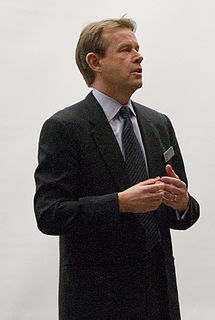A Quote by Alex Berenson
Information technology departments must spend enormous amounts of time and money worrying about integrating big computer systems with billions of pieces of customer data.
Related Quotes
The dreams of the past - whether it was public TV being rolled into the classroom to teach Spanish, or the film projectors or the videotapes or the computer-aided instruction drill systems - the hopes have been dashed in terms of technology having some big impact. The foundation, I think can play a unique role there. Now, our money is more to the teacher-effectiveness thing, and technology is No. 2, but I'll probably spend more money on the technology things.
Programmers waste enormous amounts of time thinking about, or worrying about, the speed of noncritical parts of their programs, and these attempts at efficiency actually have a strong negative impact when debugging and maintenance are considered. We should forget about small efficiencies, say about 97% of the time: premature optimization is the root of all evil. Yet we should not pass up our opportunities in that critical 3%.
I think Amazon is the preeminent pioneer in building a new way of doing commerce: personalized, database-driven commerce, where the big value is not in the purchase fulfillment, but in knowing as much about a customer base of ten or twenty million people as a corner store used to know about a customer base of a few hundred. In today's mass-merchandising world, that's largely gone; Amazon is trying to use computer technology to re-establish it.

































